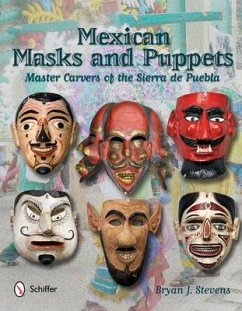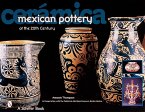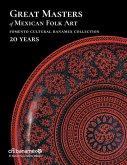In the Mexican states of Puebla and Veracruz, old masked dances have survived in isolated mountain regions. These dances include wonderful masks of humans and animals, masks with beautiful, comic, or wicked faces. Created by Indigenous master carvers, mascareros, these masks and puppets appear during religious fiestas. Over 700 vivid color photos reveal these masks and puppets in all their glory. The thoroughly researched text answers the questions about who made these beautiful works of art, who these dance characters are, and the nature of the religion they represent. The Spanish conquerors strove to convert the Indian inhabitants of Mexico to Christianity. However, these converts secretly retained important deities from earlier times to accompany Christian elements, creating a poetic blend of beliefs. Given that these indigenous peoples have suffered many injustices, the masks, puppets, and dance dramas reflect many unresolved societal tensions along with veiled wishes for divine justice.








